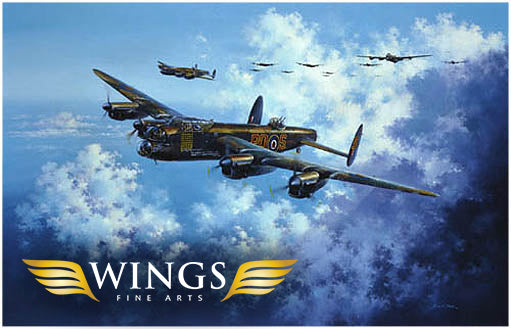Balloon Buster by Robert Taylor - Aviation Art
- Variant: Limited Edition
- In Stock: 0
- Brand: Wings Fine Arts
- Collection: All
Product Specs
Balloon Buster
By Robert Taylor
SOLD OUT
As he passed to the north of Arras he could see the ground crew furiously winching the balloon down, and although aware of the danger of attacking normally heavily defended balloon installations, couldn't resist the opportunity to make an attack.
Putting his Camel into a dive he swooped down pumping some 400 rounds into the target. With the balloon now hauled down around 1000 feet, the observer aboard had just seconds to make his escape, leaping from his basket and pulling at his parachute in the same motion.
Robert Taylor's new painting captures the scene a few moments later: the balloon is aflame, the basket and a tangle of ropes and guys, binoculars, telescopes and maps plummeting towards the ground. The observer's parachute snaps open, as Henry Botterell banks his fighter clear of his victim - close enough to see the fear in his eyes that he too may fall victim to the Camel's guns. However, in the traditions of gallantry that prevailed among World War I fighter pilots, Henry merely waved a salute before heading back to base - no sense in waiting around to identify whether the other aircraft that had suddenly appeared were friend or foe.
Below the drama, the rolling landscape of northern France unfolds, pockmarked with bomb craters yet tranquil in its natural rural beauty.
One of the very last opportunities for aviation art enthusiasts and collectors to acquire a print by Robert Taylor individually hand-signed by a First World War fighter pilot: Henry Botterell, now 100 years of age, is believed to be the last living fighter pilot of all nations who fought in the First Great War.







